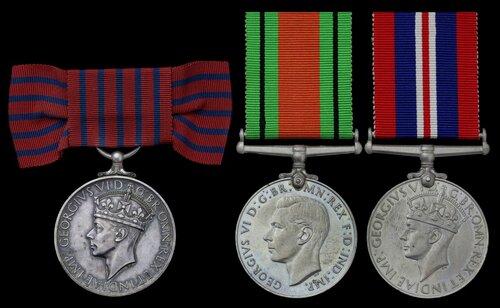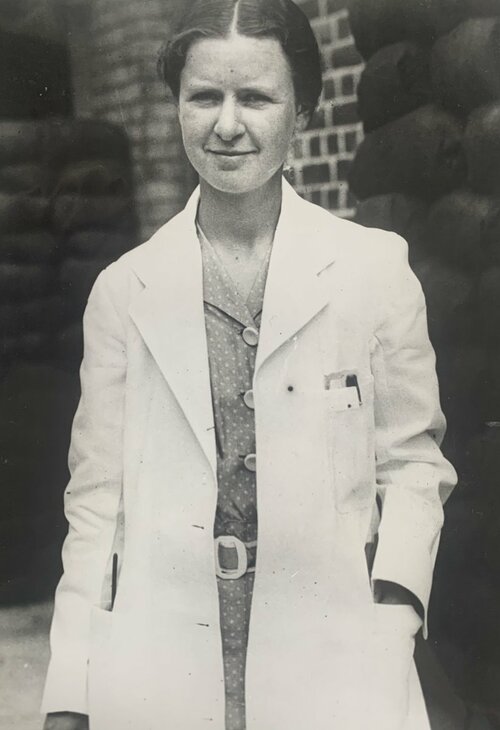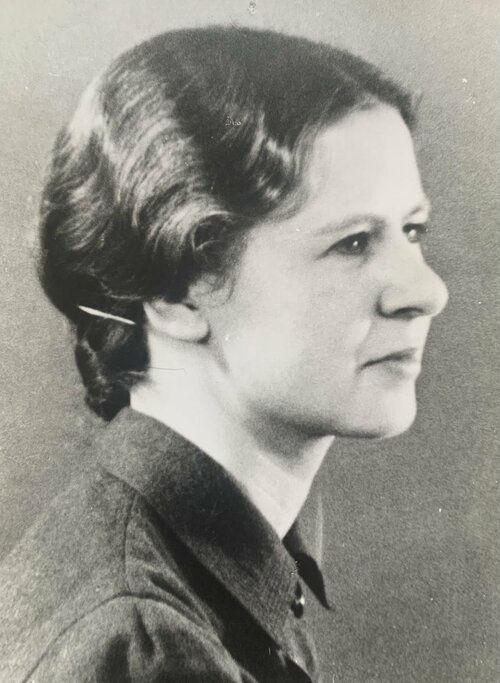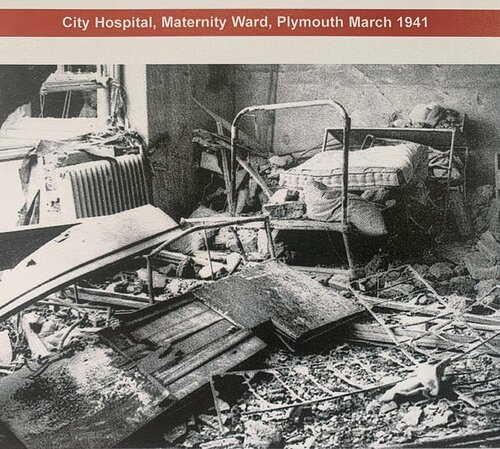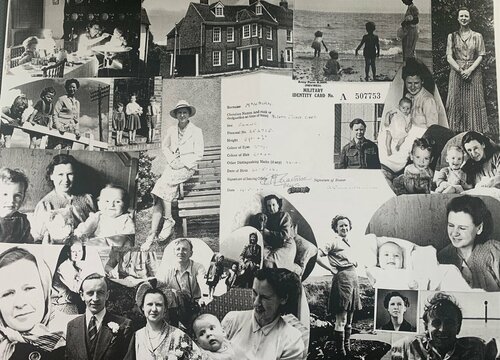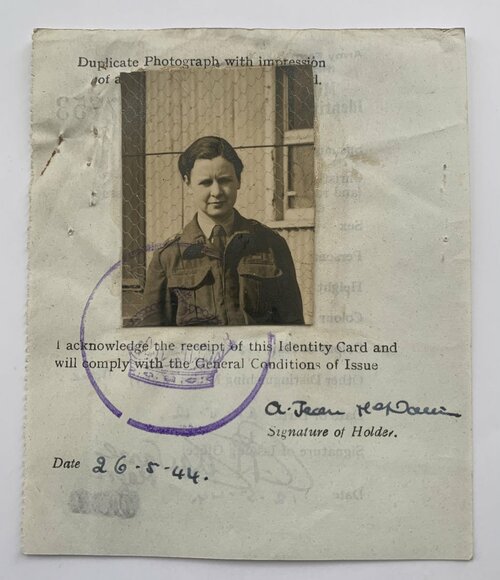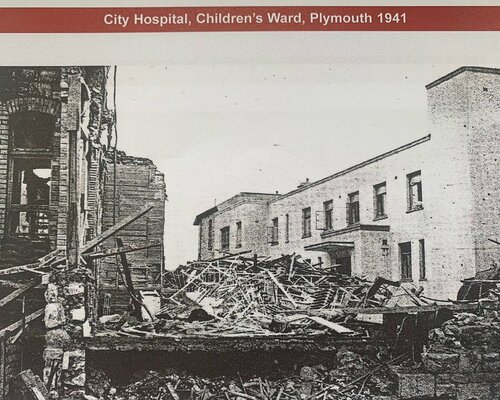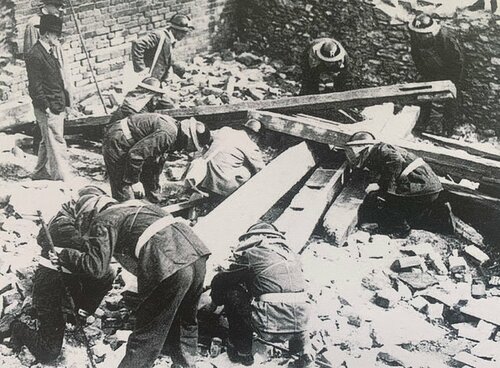Auction: 21001 - Orders, Decorations and Medals (conducted behind closed doors)
Lot: 375
An outstanding and poignant Plymouth Blitz 1941 G.M. group of three awarded to Dr. A. J. 'Mac' McNairn, Medical Officer in Charge of the Obstetrics and Childrens’ Wards, City General Hospital, Plymouth, later Major, Royal Army Medical Corps
When her ward was collapsed as a result of a direct hit from a stick of five high explosive bombs, McNairn was buried in rubble - sustaining broken ribs and severe bruising - without care or thought for her own safety, she returned to those who needed her care despite the Blitz raging around her
The events of those nights cost the lives of some 336 civilians, including the tragic loss of 14 babies and three nurses at the Hospital
George Medal, G.VI.R., 1st issue, on Lady’s bow riband (Miss Alison Jean McNairn, M.B., B.S.), in its card box of issue; Defence Medal 1939-45, in its forwarding box named to 'Dr A. J. McNairn, 29 Warminster Rd., S Norwood SE25'; War Medal 1939-45, in its forwarding box named to 'Miss A. J. McNairn, Garden House, Newington Green Rd, London N.1.', nearly extremely fine (3)
There are just 68 awards of the George Medal to Women, 1940-present, this one of just three to Female Doctors.
G.M. London Gazette 21 May 1941:
'Dr McNairn was buried to the neck in debris in the Children's Ward when it was hit [on 20 March 1941]. She was extricated, and despite her shock and injuries, made no complaint, and went on with her work. She assisted in rescue work in the Children's Ward, helped in the Maternity Ward, and gave medical assistance to a case in labour. She then saw injured patients from the wards and certain air raid casualties admitted to the hospital. Only when operations were in progress and duties were lessening, could she be prevailed upon to have treatment for fractured ribs which she had sustained when the ward collapsed. She had continued to work nobly despite what must have been severe pain, and has continued her duties ever since.'
Alison Jean McNairn - or Mac to her friends and comrades - was born at Twickenham, London on 21 May 1912, the daughter of Arthur Stuart McNairn, who had returned from time as a Missionary in Peru. Having travelled to Edinburgh and been educated at Edinburgh Ladies' College, she returned to London for Secondary education in Streatham. Having qualified MB, BS at the London School of Medicine for Women, Royal Free Hospital in 1936, her next few years were filled with house appointments in London, Bolton and Manchester. Upon the outbreak of the Second World War, she was refused a commission in the Royal Army Medical Corps, who apparently had enough women Doctors. Instead she went to the City General Hospital, Plymouth and was appointed Head of the Obstetrics and Gynaecology Department.
20-21 March 1941 Blitz - George Medal
It was almost fate that on 20 March 1941, the King and Queen paid their first visit to Plymouth during the Second World War. Having visited sites and mixed with many residents, their Majesties where taking tea with Lord and Lady Astor at Elliot Terrace, when the first warning of air attack came. Thankfully this passed without event and the visitors made their way back to London. Just two hours after they departed, the city faced its most devastating attack since the war had begun. Swarms of Heinkel III bombers at 9,000-11,500ft set sights on Plymouth and unloaded their payload with shocking accuracy, pouring 34 delayed action high-explosive bombs, followed by some 12,500 incendiary and other high explosives that night. Once the first wave had unloaded on Plymouth, another two squadrons followed the attack up with the same intensity, the attack including seventeen blockbuster bombs of 1 tonne each.
The story is taken up by Major Henderson in Fashioned into a Bow - How resolute, heroic women earned the George Medal:
'She had been reassuring the mother of a newly-admitted patient in the children’s ward which had suffered most damage and which, in addition to sick children, provided shelter for a number of babies and toddlers who had been taken into care. Immobilised as she was, she had to warn rescuers not to walk all over her as they strove to reach those casualties that they could see in the poor light. Despite her injuries and the effects of shock, once she had been released, she went into the area in which she could see that children were being laid out in a row and then spent the rest of the evening establishing which were still alive. These she carried, one at a time, to the adjoining maternity wing where they were put into beds beside the patients already tucked up there, these children remaining there, comforted, until their needs could be attended to.
She also gave assistance to a woman in labour, then dealt with injured patients brought from other hospital wards and certain air-raid casualties which had been admitted from outside. Dr. McNairn did not consent to having her own injuries dealt with until surgical operations were again in progress in the hospital and the pressure of duties was lessening. Despite having been on duty since 8 a.m. on the 20th she continued to work although suffering considerable pain which persisted even after being treated, and did not go to bed until 6 a.m. next morning, at the end of a period of duty extending over twenty-two hours. Afterwards, in spite of her injuries, she returned to her duties without taking any time off - the very thought of which she has since described to the author as ‘ridiculous!’.'
Straight back to her post, her presence in the wreck of the hospital is recorded on 22 March in the diary of the fellow nurse (https://worldwarzoogardener1939.wordpress.com/2016/03/20/plymouth-blitz-diary-1941/).
McNairn learned of the approval of her richly-deserved award whilst on leave some weeks after the events coming off a beach in Devon when approached by a news reporter. She went up to Buckingham Palace for her investiture to receive her George Medal from The King on 4 November 1941.
Commissioned into the Royal Army Medical Corps on 14 November 1942, she was Medical Officer in Charge of the A.T.S. at C.O.D. Donnington from 8 December 1942-15 March 1943. Further postings included treating A.T.S. and military families in Bovington Camp, Dorset and Catterick Camp, Yorkshire, she became interested in psychological aspects of her specialisation. Promoted Major on 20 October 1945, she was released in November 1946. Post-war she was appointed to the Maudsley Hospital, Denmark Hill and qualified DPM. Whilst there she met Dr John Garrett Jesson, who had suffered as a POW in Korea during the Second World War. They practised together at Bethlem Royal Hospital and had two children together. John died suddenly in 1976 and Alison retired to Rotherham a year later. She died there on 12 April 1999; sold together with her original Military Identity Card, a cassette tape of her experiences, copied photographs of her and her family, extracts and recommendations, besides a quantity of research related to the Plymouth Blitz including It Came to Our Door - Plymouth in the World War (1946) and three related books.
Subject to 20% VAT on Buyer’s Premium. For more information please view Terms and Conditions for Buyers.
Sold for
£19,000
Starting price
£6800

